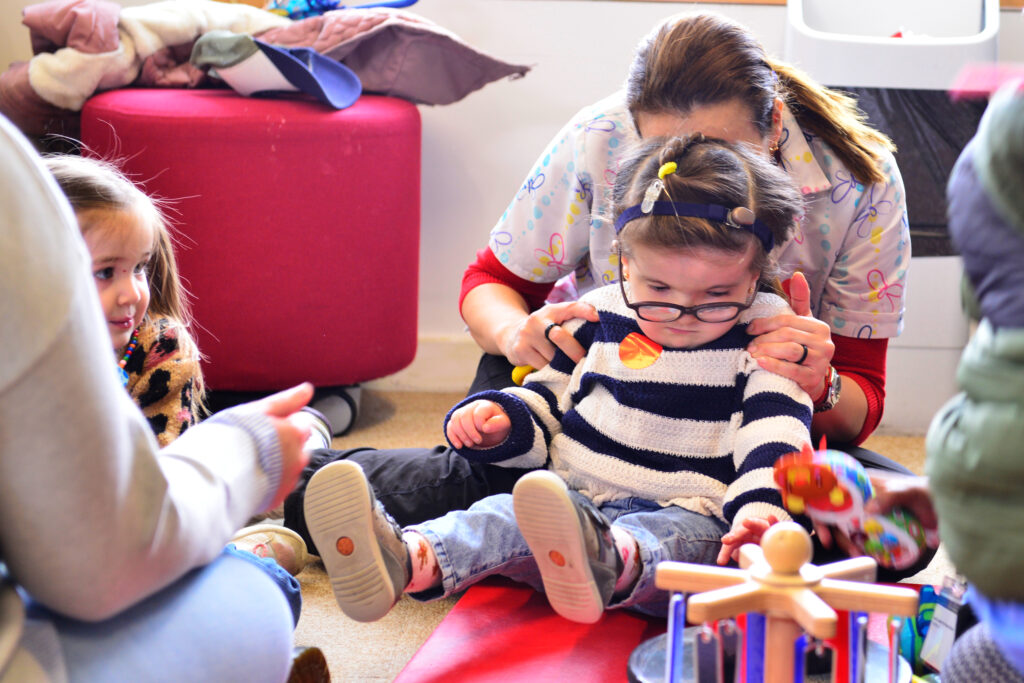In the last 12 months, nearly two third (62%) of parent carers have given up paid work or reduced hours, on average losing £21,174 from their family income.
43% of families have gone without heating. 32% of parent carers have gone without food for themselves. 33% of disabled children have gone without therapies, and a quarter (23%) without specialist equipment and home adaptations in the last year.
These are the findings of Counting the Costs 2024, our survey of 4,262 families with disabled children in the UK, revealing a landscape in which many families find themselves in impossibly precarious financial situation.
Extra costs are pushing families into debt
Our survey found that half of all families (50%) have got into debt or borrowed money in the last 12 months to pay for basics.
Going without the essentials is causing untold harm:
- 33% of parent carers say it has made them unwell.
- 31% said it affected how their child can learn.
- 20% say it has made their child’s condition worse.
This situation is made worse by the many extra costs families face. On average, parents are paying an extra £322 a month (£3864 each year) due to their child’s condition.
- Overall, families with disabled children spend a third of their income on food. Half have children with a special diet such as ARFID (avoidant/restrictive food intake disorder) or blended.
- 35% pay for therapies essential to their child’s condition at an extra cost of £805 per year.
- 44% must buy continence products at a cost of £522 each year.
- Almost one in 10 (9%) have a child at home because they didn’t get a suitable school place this September. These parents must find an extra £27 a week to keep their child at home.
Download the full presentation of findings [PDF] and full UK data [.xlsx].
“Many families are faced with impossible financial choices every day – whether they can afford to attend their child’s hospital appointment, or whether they need to turn off the freezer to save electricity for the child’s oxygen concentrator.”
Anna Bird, Contact CEO
Almost 1/3 families with disabled children live in unsuitable homes
Our survey also looked into the housing situations families are in. We found:
- Almost a third (30%) of families with a disabled child live in a home that does not meet the needs of their child.
- Of those, 48% say their home worsens their child’s condition or puts them at risk. 43% say it needs adaptations.
- More than a quarter (27%) of all families surveyed are not aware of the Disabled Facilities Grant (DFG), available from the council to help pay for building works, ramps, hoists. Only 12% have applied.
- A third (35%) had to borrow or take a loan to cover the shortfall in their DFG award. 30% used their savings, and more than a quarter (26%) had to do without or scale down the adaptations they really needed.
See how we’re campaigning for a decent home for every disabled child.
What we want to change
In response to these findings, we are calling for a Child Poverty Strategy that puts disabled children at its heart. Government must commit to:
- An energy social tariff for critically ill disabled children.
- Breakfast clubs and childcare options that meet the needs of disabled children.
- Fix Universal Credit and unlock savings held in Child Trust Funds.
- Investment in support for disabled children through schools, social care and health to reduce financial burden on families.
- A benefit check for every parent carer in the UK.
Our research also found that the benefit system feels like a minefield for most, and many don’t trust it either.
“This research shows the government needs a child poverty strategy that recognizes the unique costs coupled with employment challenges that families with disabled children experience. We need to see a strategy with clear and ambitious goals to improve their household incomes and reduce essential costs.”
Anna Bird, Contact CEO
What you can do
Contact is uniquely placed to help families get the financial support they are entitled to, making the process of claiming less stressful.
If you can, please donate to our Lifeline Appeal.
More about Counting the Costs
We run Counting the Costs surveys roughly every two years to get a picture of the finances of UK families with disabled children.
Our findings drive our campaign activity by identifying the challenges families face and why.
See past Counting the Costs survey reports.
